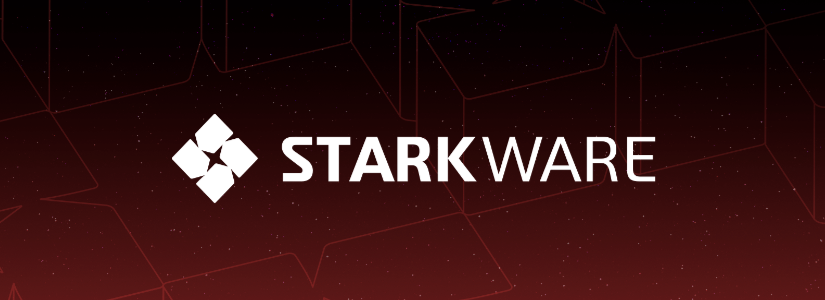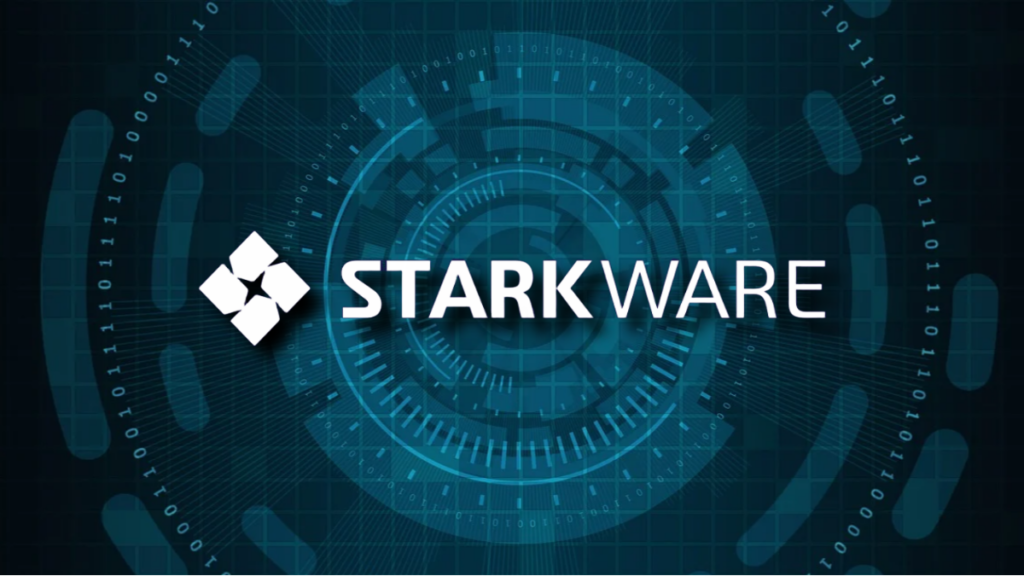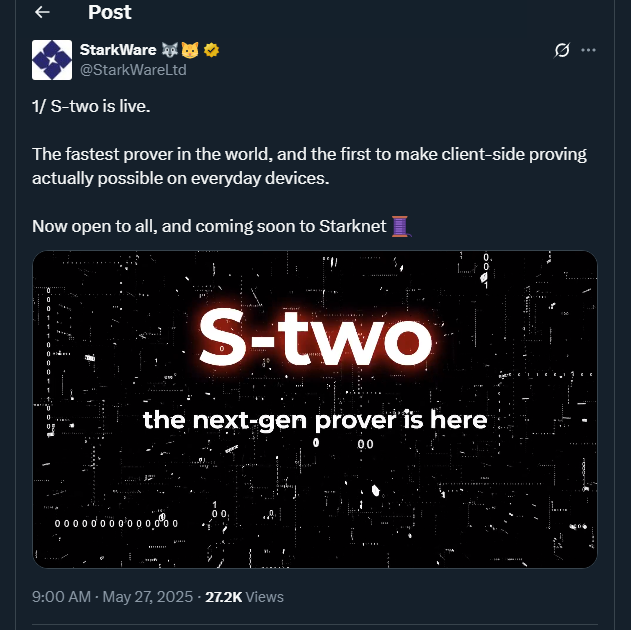TL;DR
- StarkWare introduces STARK Two (S-two), a cryptographic proof generator that operates directly from devices like phones and browsers.
- Its performance is 39 times faster than previous versions, enabling more efficient and private experiences.
- Additionally, projects like Kakarot and ZAN have already integrated it, opening a new chapter for ZK technology adoption within the crypto ecosystem.
With the public alpha release of STARK Two, StarkWare aims to bring zero-knowledge (ZK) proof generation directly to users’ hardware. This tool, compatible with CPUs, GPUs, and browsers, allows for cryptographic validations without relying on central servers, significantly changing how privacy and verification are managed on the blockchain.
The Israeli company, a pioneer in Ethereum scalability and privacy, is doubling down on computational decentralization with this move.
Decentralized Privacy for All Devices
S-two is already being used by key ecosystem participants like Kakarot, which integrates it within ETHProofs to improve the efficiency of block validation, and ZAN alongside AntChain OpenLabs, which are incorporating GPU acceleration to further boost performance. Nexus is also working on standardizing RISC-V traces to align with the architecture of the new system.
The goal is clear: decentralize the proving capability and put control back in the hands of users. Applications such as payments without balance exposure, identity verification without revealing personal information, and even cryptographic proof of achievements in offline video games become feasible with this technology.
Crypto, Trust, and Spy-Proof Computing
The impact of this goes beyond the crypto space: sectors like finance, healthcare, and education could benefit from proof verification without the need to reveal sensitive data. From academic certificates to medical histories, STARK Two enables the verification of authenticity without compromising privacy. Oren Katz, COO of StarkWare, pointed out that even salary payments could be made with full transparency but without exposing private data, which further strengthens the real-world utility of ZK in daily life and helps mainstream its adoption.
Furthermore, the fact that this technology is being adopted by high-profile projects in the blockchain space signals a paradigm shift in how decentralized applications will be designed moving forward. Local proof generation not only reduces costs but also enhances user experience without sacrificing security.

Zero-knowledge cryptography has long been a promise for privacy, but it traditionally required heavy infrastructure. Now, anyone with a mobile device can generate complex, fast, and private proofs. STARK Two is not just a technical tool: it represents a new philosophy for Web3, where privacy is not negotiable, it is ensured by the code.











